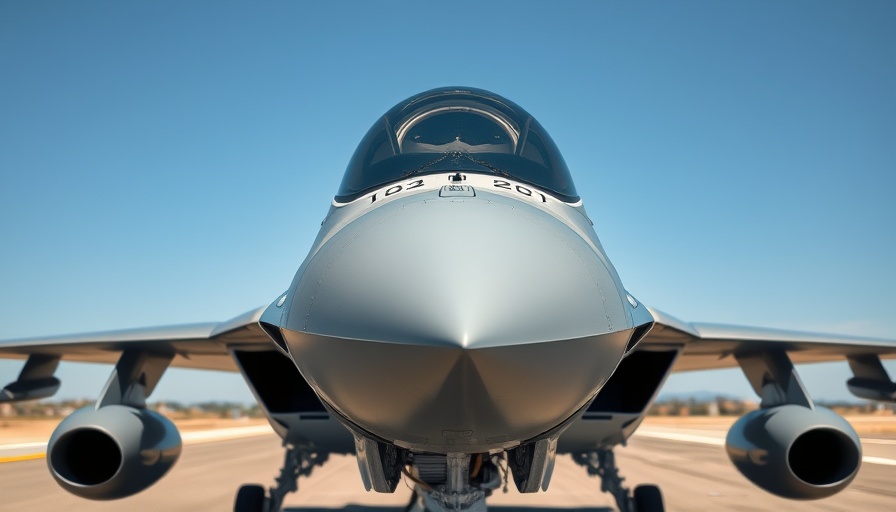
Trump Dismisses Regime Change Claims Amid Military Buildup
In a recent statement that has caught the attention of both domestic and international news outlets, President Donald Trump has clarified the United States' position regarding Venezuela, asserting that the U.S. is not pursuing regime change. This declaration comes in the context of significant military movements, including the deployment of an additional 10 stealth fighter jets to Puerto Rico, escalating the military's presence in the Caribbean.
Understanding the Tension in Venezuela
Amid an already tense political climate, President Trump remarked on the controversial election in Venezuela, hinting at widespread doubts about the legitimacy of President Nicolas Maduro’s victory in 2024. His comments suggest a nuanced position where, despite denying intentions for military intervention, the U.S. maintains concerns about the current Venezuelan government’s legitimacy. Conversely, Maduro has expressed a willingness to engage in dialogue with the U.S., emphasizing his respect for Trump despite their differing views.
International Implications on U.S.-Venezuelan Relations
The claims from both President Trump and President Maduro reflect a broader struggle between the U.S. and Venezuela that dates back several years. Since Maduro took office amidst allegations of election fraud in 2013, tensions have escalated, with past U.S. administrations imposing sanctions and openly supporting opposition movements. Trump's assertion that the U.S. is not discussing regime change may be interpreted as an attempt to stabilize relations while also maintaining a strategic military presence in the region.
A Glimpse into Military Strategy
Deploying fighter jets to Puerto Rico is part of a larger strategy to enhance military readiness in the Caribbean amidst growing regional instability. The U.S. aims to deter potential threats, including those posed by drug cartels that influence the region significantly. However, the deployment of military assets also raises questions about the balancing act of demonstrating strength without provoking direct conflict.
Counterarguments and Perspectives on Military Presence
While the U.S. government justifies this military buildup as necessary for combatting drug trafficking and regional threats, critics argue that it could exacerbate tensions with Venezuela and lead to a situation reminiscent of past Cold War confrontations. The military presence in the Caribbean might not just be perceived as defensive; for some, it signals intentions of interference in the affairs of a sovereign nation.
The Importance of Dialogue
In his public comments, Maduro highlighted Venezuela's readiness to engage in dialogue with the U.S., presenting an opportunity for communication that could de-escalate the ongoing tensions. As global dynamics shift, finding pathways to peaceful resolution may be critical in avoiding military entanglements and fostering regional stability. Both countries could benefit from dialogue that values sovereignty and promotes mutual interests rather than confrontation.
Conclusion: A Call for Strategic Caution
The latest developments highlight the delicate balance between military readiness and diplomatic engagement in foreign relations. The U.S. is at a crossroads where the decisions made regarding Venezuela will resonate significantly, not just for the people of Venezuela, but for broader geopolitical stability in Latin America. As Washington navigates these complex waters, prioritizing peaceful discourse may yield better outcomes than rhetoric focused solely on military might.
 Add Row
Add Row  Add
Add 



Write A Comment